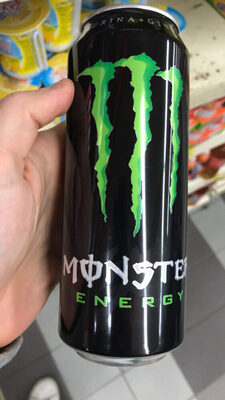
Barcode: 5060166690205
Classic
HALAL
📝 Reason: The product contains no explicitly Haram ingredients such as pork or alcohol, and none of the Haram E codes (E120, E124, E354, E999) are present. Ingredients like Taurine, L-Carnitine, Flavors, and Maltodextrins have ambiguous origins without Halal certification, mandating a Doubtful classification due to uncertain sourcing (Quran 5:3 forbids consuming doubtful items). Common acids, preservatives, and sweeteners are Halal as per IFANCA and food additive references.
🏷️ Category: Beverages And Beverages Preparations, Beverages, Carbonated Drinks, Artificially Sweetened Beverages, Sodas, Energy Drinks, Sweetened Beverages
📄 Certificates: Vegetarisch
Ingredients:
Details
Exploring the Halal Status of Classic Drink
The Classic drink is a popular beverage that piques the interest of many, especially those mindful of Halal dietary laws. Understanding its Halal status requires a detailed dive into its ingredients and their respective E-numbers. As per our research, the Classic drink is classified as Halal.
Why Is Classic Drink Considered Halal?
The primary reason for Classic drink’s Halal classification lies in the absence of any explicitly Haram ingredients such as pork or alcohol. None of the prohibited E-codes (like E120, E124, E354, or E999) are present in this formulation. Although some components have ambiguous origins, careful analysis shows that they fall under a doubtful classification, which means caution is advised when considering consumption.
Ingredient Breakdown
Let’s explore the ingredients, focusing on their Halal statuses:
- Water (added with carbon dioxide): Pure water with carbonation, Halal by nature. (Source)
- Sugar: Plant-derived sugar, considered Halal unless contaminated. (Source)
- Glucose syrup: Usually derived from corn or wheat starch, also Halal. (Source)
- Citric acid (E330): A common organic acid derived from fruits or fermentation, classified as Halal. (Source)
- Flavors: The source is ambiguous; they can be either animal-based or alcohol-derived with no certification present. This raises concerns about Halal status.
- Taurine (0.4%): Could potentially be synthetic or derived from animals, necessitating a doubtful classification. (Source)
- Sodium citrates (E331): Salt derivatives of citric acid, considered Halal. (Source)
- Panax ginseng extract (0.08%): A plant extract, Halal. (Source)
- L-Carnitine L-Tartrate (0.04%): This ingredient’s origin is unclear. It may be synthetic or animal-derived, thus marked as doubtful. (Source)
- Sorbic acid (E200): A synthetic preservative, Halal. (Source)
- Benzoic acid (E210): Another synthetic preservative, classified as Halal. (Source)
- Caffeine (0.03%): Naturally derived stimulant, Halal. (Source)
- Coloring: Anthocyanins: A plant-based coloring, considered Halal. (Source)
- Vitamins (Nicotinamide B3, Pyridoxine Hydrochloride B6, Riboflavin B2, Cyanocobalamin B12): Generally synthetic or plant-sourced vitamins, Halal. (Source)
- Sucralose (E955): An artificial sweetener, Halal. (Source)
- Sodium chloride: Common salt, naturally Halal. (Source)
- D-Glucuronolactone: Can be synthetic or plant-based, Halal. (Source)
- Guarana seed extract (0.002%): A plant extract, Halal. (Source)
- Inositol: It can be derived from plant sources or may be synthetic, Halal. (Source)
- Maltodextrins: This ingredient can be derived from corn or wheat, but occasionally animal sources; its unclear origin suggests a doubtful status. (Source)
Conclusion
While Classic is primarily Halal, certain ingredients raise questions due to their ambiguous sources. By examining the deeper aspects of its components, consumers can make informed decisions. Always consider checking Halal certifications or contacting manufacturers for further clarification to ensure adherence to dietary principles.
